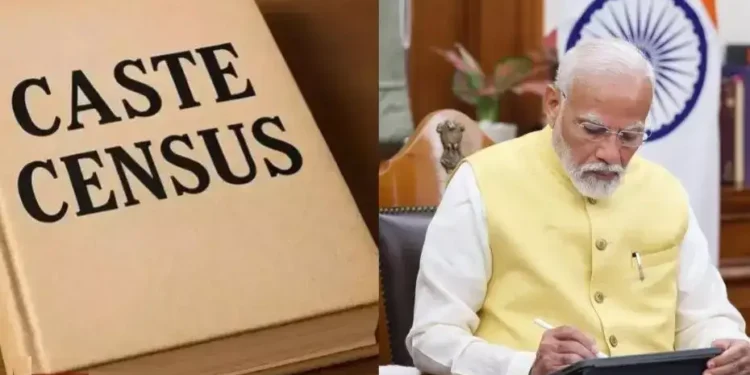Lagatar24 Desk
New Delhi: In a political move that may reshape India’s electoral and social discourse, the Narendra Modi-led government has announced a nationwide caste census to be conducted alongside the upcoming population enumeration. The decision marks a notable shift from the BJP’s longstanding stance on caste-based data and is already stirring a war of narratives between the NDA and the Opposition over its origins and implications.
The announcement arrives just months ahead of crucial state elections in Bihar and Uttar Pradesh, intensifying speculation that it is a strategic counter to growing pressure from regional and national Opposition parties. Critics argue it’s an attempt to pre-empt a consolidated OBC vote bank being mobilised by rivals like the Congress, JD(U), RJD, and Samajwadi Party.
From Kamandal to Mandal 2.0?
In the 1990s, the BJP opposed the Mandal Commission’s recommendations for OBC quotas, famously coining the phrase “Mandal ka jawab Kamandal se”—a call for Hindu unity over caste divides. Fast forward to 2025, and the BJP is now championing what many see as a modern-day Mandal moment, even as it attempts to balance this shift with its traditional upper-caste support.
Prime Minister Narendra Modi, who has consistently highlighted his own OBC background, is now positioning the caste census as a tool of empowerment for underrepresented communities—shifting from mere symbolic representation to potentially structural reforms.
Political Ripple Effects
Congress leader Rahul Gandhi, who had championed the idea during his Bharat Jodo Yatra, called the move “delayed but welcome.” He reiterated the party’s commitment to lifting the 50% cap on reservations and expanding representation for backward classes.
Congress president Mallikarjun Kharge echoed the sentiment, calling the announcement “long overdue.” Telangana Chief Minister Revanth Reddy, who oversaw his state’s caste-based survey earlier this year, claimed vindication: “What Telangana does today, India follows tomorrow.”
The Telangana survey reported 56.32% of its population belonging to Backward Castes—data that significantly influenced the state’s development plans and is likely a model the Centre cannot ignore.
BJP’s Calculated Risk
While the caste census could consolidate the BJP’s gains among non-dominant OBC groups, it comes with risks. The party’s carefully cultivated image of Hindu unity might be strained by renewed demands for expanded quotas and OBC sub-categorisation.
Social experts warn of potential turbulence. A comprehensive caste count could trigger demands for redistribution of government benefits, job reservations, and resources—potentially alienating segments of the BJP’s upper-caste base.
Still, by initiating the process at the national level, the BJP retains control over how the exercise unfolds, limiting the Opposition’s ability to dominate the narrative.
A Preemptive Strike Ahead of Bihar Polls?
The timing is crucial. With Bihar heading to elections later this year, and Nitish Kumar’s state-level caste survey already shaping public discourse, the Centre had little choice but to act. Ignoring or opposing the demand could have cemented perceptions of the BJP being indifferent or even hostile to OBC interests.
By endorsing the caste census now, the BJP has flipped the political equation—recasting a contentious issue as a measure of inclusive governance, while robbing the Opposition of an exclusive electoral plank.
Whether this is a moment of bold social reform or a high-stakes political gamble, the caste census decision may well define the contours of India’s next general election—and possibly, its future approach to affirmative action.







